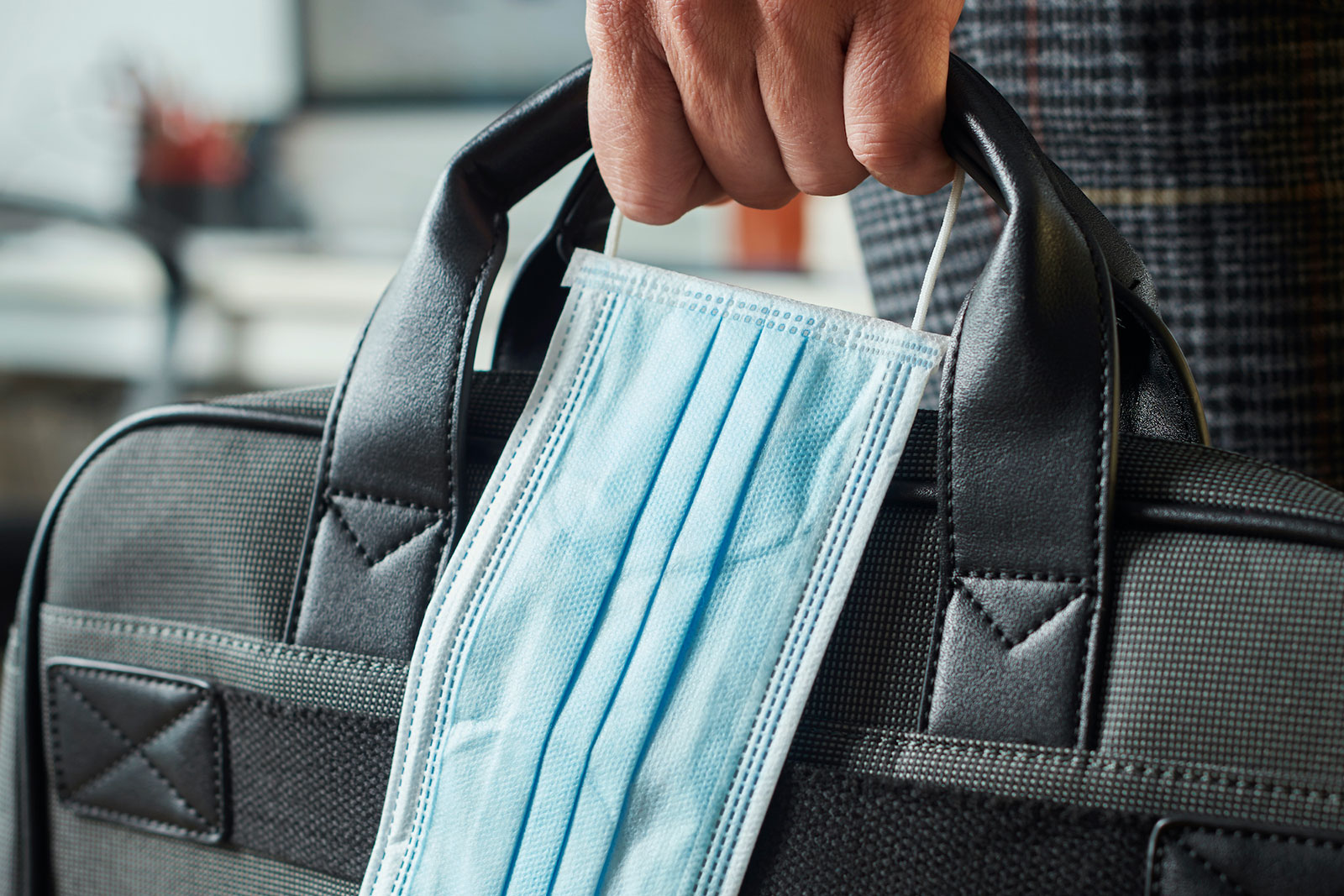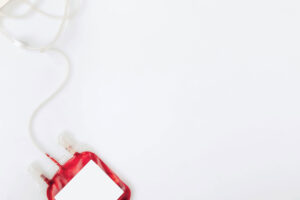Here’s one thing we know: The COVID-19 pandemic has altered everyone’s personal and professional lives in a myriad of ways. For immunocompromised cancer survivors, there is an elevated risk of serious complications if they contract the virus. As Rebecca Nellis, executive director of CEW Foundation’s Cancer and Careers program, explains, many survivors feel anxiety about returning to their workplace before the pandemic is over or a vaccine has been approved and distributed. Many more have had to navigate additional feelings of fear and stress because they still reported to an on-site workplace throughout the pandemic.
In September 2020, Cancer and Careers asked cancer patients and survivors in their community to complete a voluntary anonymous survey about the impact of the COVID-19 virus on their work lives. According to Nellis, results from the Cancer + COVID-19 + Work Survey show that more than half of respondents (62 percent) feel or felt uncomfortable going back to work and 48 percent said they had some fear of being infected with the novel coronavirus at work.
“Findings demonstrate that there are deep-seated concerns and discomfort when it comes to working during this time,” Nellis says.
MEETING THE NEEDS OF THOSE WITH CANCER
The first thing cancer patients and survivors should do is communicate the specifics about their work situation with their health care team. Telling their doctors as much detail as possible—describing the physical layout of their workspace, information about their particular role, the current safety measures or lack thereof in place—will allow them to offer the best guidance pertaining to necessary protections.
“Besides following standard public health safety guidelines like wearing a mask, maintaining social distancing and disinfecting hands and surfaces, health care teams can provide additional individualized advice that is specific to a person’s medical needs and individual work environment,” Nellis says.
Leading oncology physical therapy specialist Dr. Leslie Waltke utilizes her 15 years of experience to lead cancer rehab courses for professionals and host a video series that answers questions about side effects, recovery, health and exercise after cancer. Waltke says that in addition to the regular stressors of returning to work, cancer survivors must now also deal with the risk of contracting the COVID-19 virus and the workplace changes it has created.
“Alterations in how business is conducted, how we interact with customers and co-workers, continual changes, new learning and a general loss of normal routine certainly further increase the level of anxiety and uncertainty,” Waltke says.
When things get complicated, communication is absolutely key. Make sure you have medical clearance from your cancer team to safely return to work. Different cancer treatments and cancer types affect the immune system to varying degrees. Discuss with your oncologist both your risk of contracting the novel coronavirus as well as the risk of becoming seriously ill from the virus.
“Once you know this risk information, talk with your supervisor,” Waltke says. “Discuss the company’s pandemic-related policies and safety guidelines.”
Will you need to provide your own personal protective equipment (PPE) like face coverings and hand sanitizer, or will they supply it for you? How will they alter and manage shared spaces? How often will they be cleaning? And perhaps most importantly, how will they enforce proper mask wearing?
“Asking the questions about what their workplace is doing to ensure employees’ safety and health during this time can determine whether concerns are being thought through and planned for, or whether it may be necessary to have additional conversations,” Nellis says.
In addition to making sure their employers are prioritizing the health and well-being of staff by providing protective measures, Nellis suggests employees might also want to look into making a request for reasonable accommodation under the Americans with Disabilities Act (ADA). States also have fair employment laws, many of which provide additional protection beyond what the ADA offers.
“It’s important to note that the ADA has certain eligibility requirements that must be met in order to use it, but even if those requirements aren’t met, an employer might be open to ideas that enable them to support their employee during this time while still meeting their business needs especially since many modifications cost little to no money at all,” Nellis says.
It’s important to remember that an employer might make a blanket assumption about their employees’ readiness to return to the workplace, without considering everyone’s individual comfort levels and/or risk factors. This can be especially hard if an employee with cancer has not disclosed their diagnosis to their employer and still is not comfortable doing so.
“There’s also the possibility that co-workers might not consider themselves at high risk of contracting COVID19 or might be too lax about safety measures, so depending on the situation and the person’s comfort level, it might help to talk to a manager [or] supervisor or human resources about communicating the importance of safety requirements to the whole staff,” Nellis says.
The novel coronavirus impacts everyone and every workplace, so there will be many people with different reasons—not just cancer—concerned about safety and returning to in-person work.
- Screening procedures are good, but not perfect. Just because someone passed through screening to get into your workplace doesn’t mean they don’t have the COVID-19 virus. Remember, many people with the COVID-19 virus are asymptomatic and unaware of their status.
- If someone tested negative for the COVID-19 virus two days ago but were at a restaurant or in a crowded public space yesterday, that negative test two days prior becomes irrelevant.
- People are still wearing ineffective face coverings. Avoid people wearing masks with valves. These valves allow the person’s exhaled air to pass through the mask, rendering them ineffective at protecting you from the novel coronavirus. Avoid people wearing plastic face shields without a mask underneath. Studies have shown that plastic face shields alone do not fully block exhaled droplets. Avoid people wearing thin or polyester spandex neck gaiters. Current studies show they do a poor job of limiting exhaled droplets.
- People are still using masks incorrectly. Avoid people wearing masks under their nose. And certainly avoid people who pull their mask down to talk.
“Remember knowledge is power, and knowledge is needed now more than ever,” Waltke says. “Just like getting through cancer treatment, persistence is key. As pandemic fatigue becomes a thing for all of us, we must fight complacency. Protect your hard-fought-for health now as best you can. Remember, as a cancer survivor, persistence is your superpower.”







